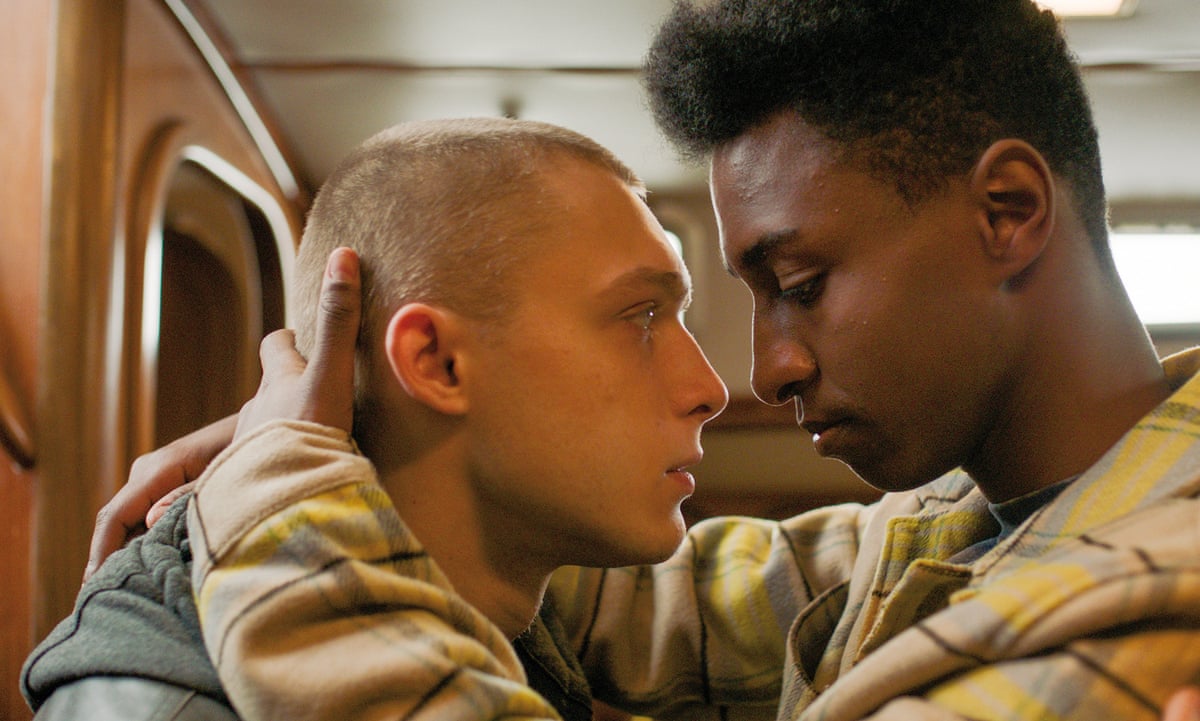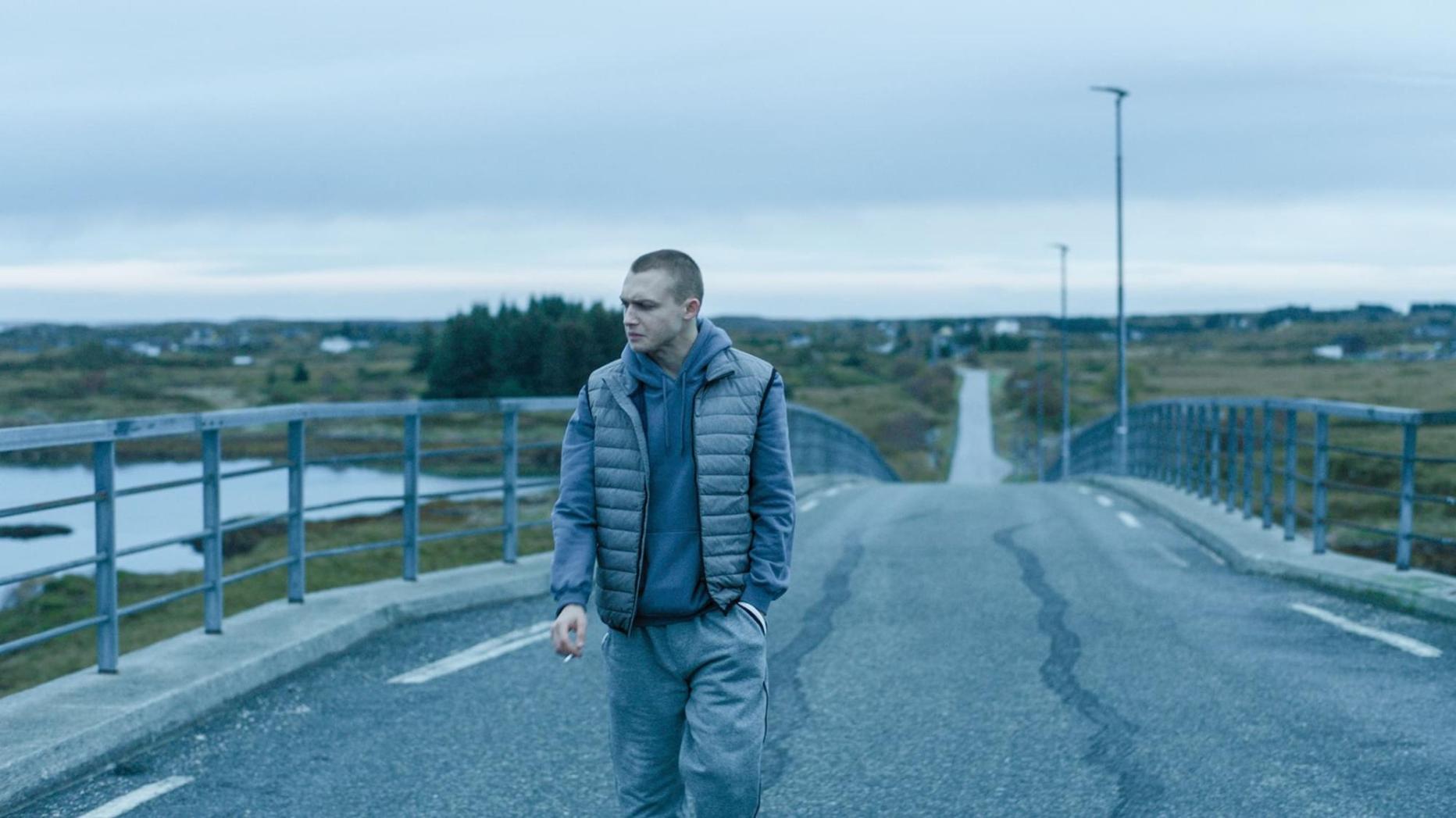👉Full movie at end of the post
Norwegian Dream opens as a quiet meditation on labor, migration, and alienation, centering on Robert—a 19-year-old Polish migrant who travels to Norway for factory work, driven by the need to financially support his family. His days are filled with repetitive, physical labor at a fish-processing plant, and his nights are spent in stark, shared dorms where camaraderie is thin and vulnerability is dangerous. The film quickly immerses us in his isolation—not just from home, but from any sense of self. Robert’s silence and restraint are not only cultural, but strategic: survival in this environment requires emotional invisibility.

The tone begins to shift when Robert meets Ivar, a confident, openly queer Norwegian co-worker who embraces drag performance and flamboyance without apology. Through Ivar, Robert begins to experience something foreign—connection without shame. Ivar challenges Robert’s guardedness, offering kindness and curiosity instead of suspicion. Their relationship grows quietly but intensely, not through grand gestures but through shared silences, glances, and small rebellions. This tension—between attraction and fear, possibility and shame—gives the film its emotional backbone.
Beneath the budding romance lies a deeper crisis: identity under threat from both internalized homophobia and the conservative expectations of Robert’s Polish co-workers. The pressure to conform—culturally, sexually, even politically—is immense. The film subtly shows how masculinity and nationalism intersect, especially among migrant workers who equate pride and endurance with silence. Robert’s struggle is not only about coming out—it’s about whether he can live honestly at all in a space that punishes difference, even indirectly. Every step toward Ivar feels like a betrayal of the self he’s used to protecting.

The labor strike becomes a turning point, not just narratively but symbolically. As Ivar becomes a vocal leader fighting for workers' rights, Robert stands at a moral crossroads. He must choose between going along with management for personal security or standing up for justice—and, by extension, standing by Ivar. The tension here isn't overplayed; instead, the film leans into Robert’s hesitation, portraying his fear as deeply human. It's about economic survival, yes, but also about emotional safety: What happens when love and livelihood collide?

By its conclusion, Norwegian Dream refuses to offer an easy resolution. Instead of triumph, we’re left with an open-ended transformation. Robert doesn’t emerge as a fully self-actualized hero—but something inside him shifts. The dream in the film’s title is not about material success, but about inner freedom. Through restraint and realism, the film captures a journey of self-discovery that is slow, fragile, and deeply moving. It’s a story of queer longing wrapped in cold sea air, of a young man learning to hear his own voice beneath the noise of expectation.

-1741527822-q80.webp)

